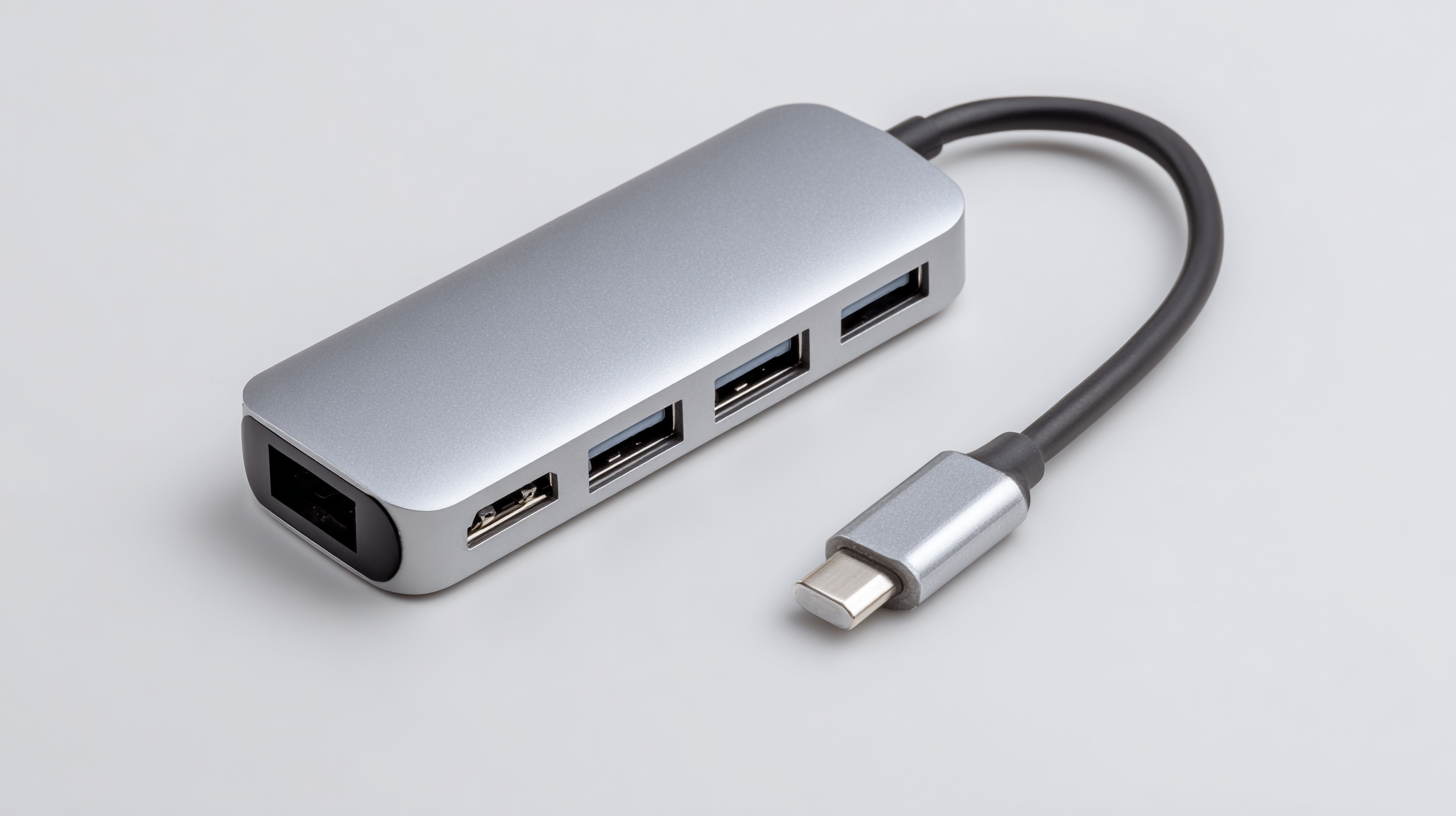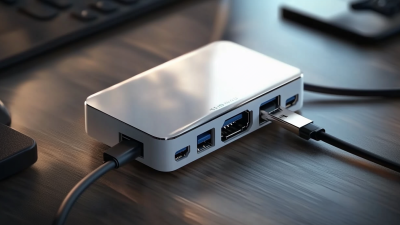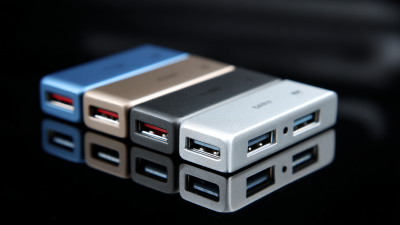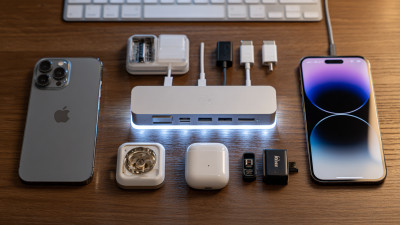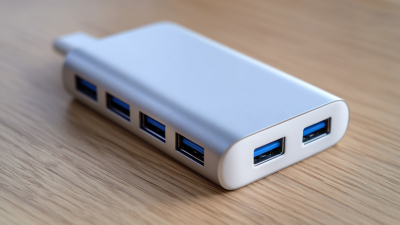
-
Home
-
Products
-
About Us
-
OEM&ODM
-
News
-
Contact Us
Inquiry
Form loading...

In today's fast-paced digital world, having the right tools to enhance our mobile experience is essential. One such tool that has gained significant importance is the USB Hub for Mobile Phone. As smartphones become increasingly multifunctional, the need for expanding connectivity options also rises. Whether you're looking to connect multiple devices, transfer data efficiently, or charge your phone while using it for productivity tasks, choosing the right USB hub can make all the difference. However, with a plethora of options available on the market, selecting the best USB Hub for Mobile Phone can be a daunting task. This comprehensive guide aims to simplify that process for you, covering key features to consider, compatibility issues, and our top recommendations. By the end of this guide, you will be equipped with the knowledge to make an informed decision that suits your mobile needs perfectly.
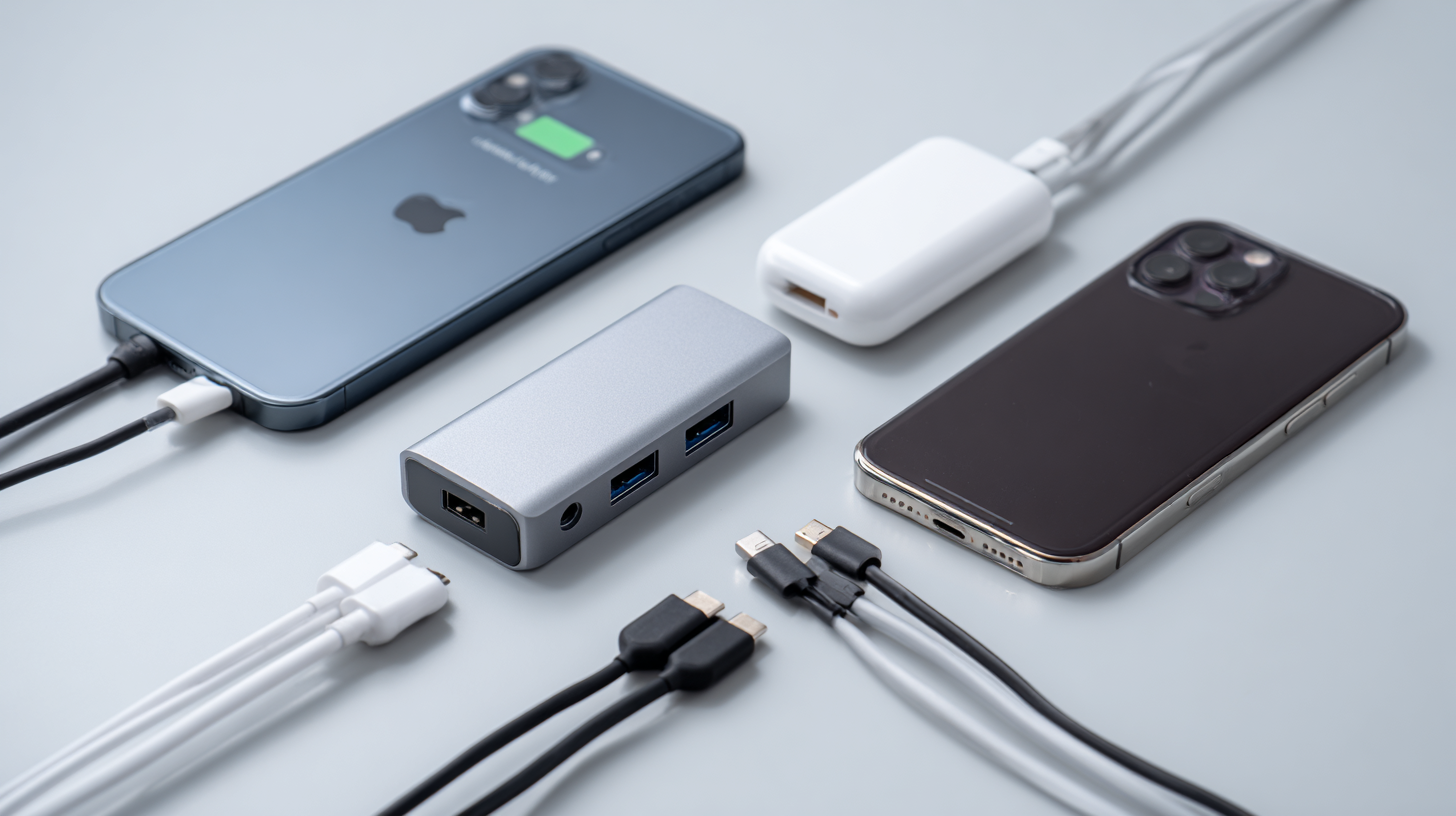
When selecting the best USB hub for your mobile phone, it’s essential to start by understanding your device’s USB compatibility and requirements. Mobile phones typically feature USB Type-A, Type-B, or Type-C ports, with Type-C being the most common in newer models. Each type has different capabilities, including data transfer speeds and power delivery options. Knowing which type of port your mobile device uses ensures that you choose a hub that fits perfectly and meets the necessary functional requirements.
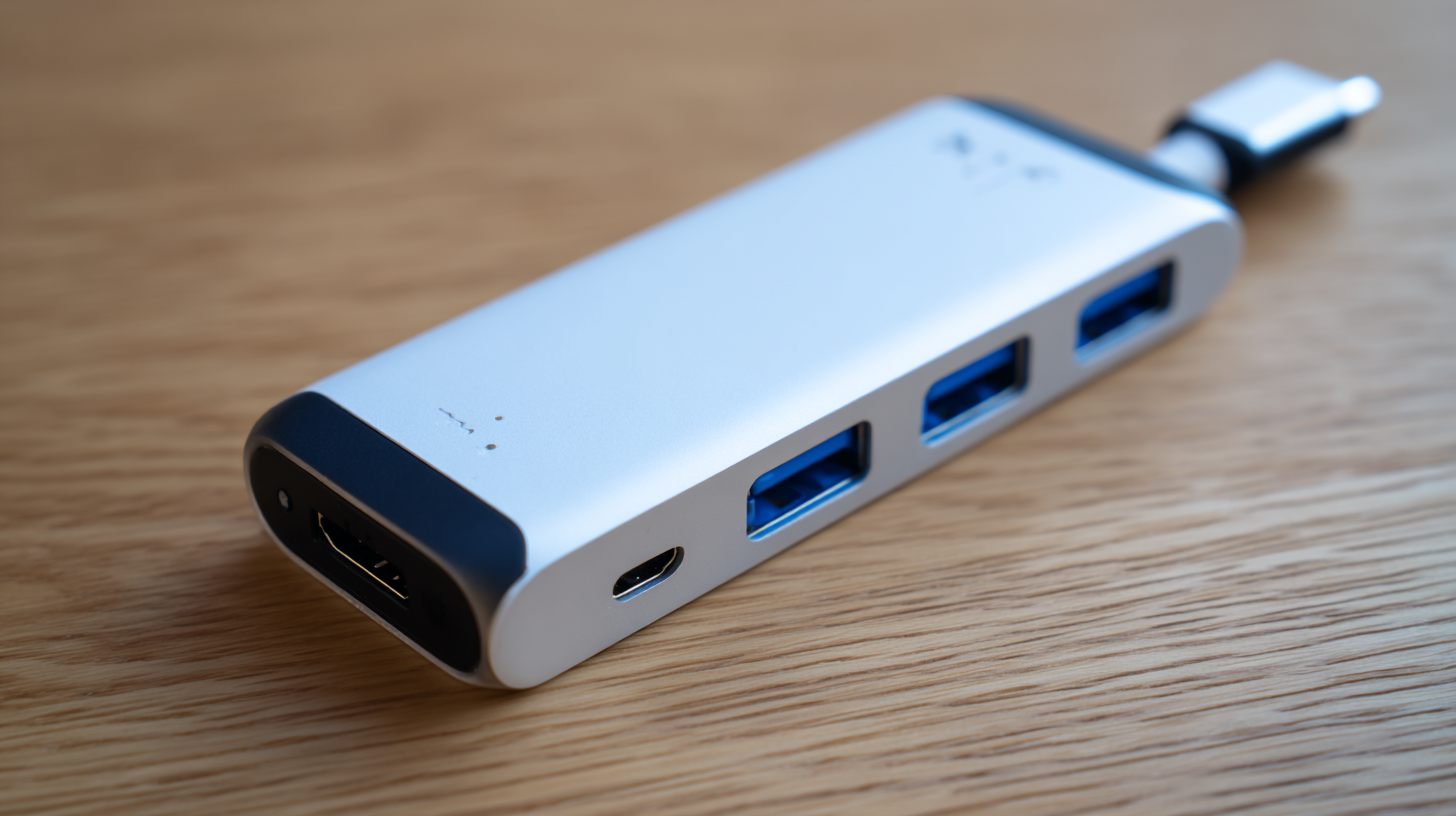
Additionally, consider the specific uses you have in mind for the USB hub. If you use your phone for activities that require high data transfer rates, such as video streaming or large file transfers, look for a hub that supports USB 3.0 or higher. Furthermore, if you need to charge multiple devices simultaneously, ensure the hub offers adequate power output. Assessing these compatibility factors will guide you in selecting a USB hub that enhances your mobile experience without compromising on performance.
When choosing a USB hub for mobile devices, key features can significantly enhance your experience. First and foremost, consider the hub's compatibility with your mobile operating system. According to a report by Statista, nearly 75% of global smartphone users operate on Android or iOS systems, so selecting a hub that seamlessly integrates with these platforms is essential. Look for USB hubs that support USB-C technologies, which offer faster data transfer rates up to 10 Gbps, as highlighted in industry analyses.
Additionally, the number of ports and charging capabilities cannot be overlooked. A typical USB hub may provide anywhere from 3 to 10 ports, accommodating multiple devices simultaneously. Research from the International Data Corporation (IDC) indicates that the demand for multi-port hubs has grown by 25% in recent years, reflecting consumers' needs for connectivity. Furthermore, hubs that support Power Delivery (PD) can deliver up to 100W of charging power, making them ideal for users who require rapid charging for their devices while using them, ensuring efficiency and convenience.
When choosing a USB hub for your mobile phone, understanding the difference between active and passive hubs is crucial.
Active USB hubs contain built-in components that amplify the power signal, allowing them to support multiple devices over longer distances without loss of performance. According to a report by the USB Implementers Forum, active hubs can typically provide power up to 5 meters away, which is beneficial for users who need to extend connectivity without sacrificing speed or reliability. This is particularly vital for high-demand devices such as external hard drives and 4K displays that require more power.
On the other hand, passive USB hubs rely on the power supplied by the host device and are generally limited in their range and capability. They may function adequately for low-power devices such as mice and keyboards but can struggle with higher-consumption peripherals when used beyond a meter. A study by MarketsandMarkets highlights that passive hubs can introduce latency and decrease data transfer rates, rendering them less suitable for high-performance applications. Therefore, for anyone looking to maximize the efficiency and utility of their mobile setup, opting for an active USB hub is usually the preferred choice for ensuring optimal performance across devices.
When selecting a USB hub for your mobile phone, evaluating port quality and data transfer speeds is crucial. High-quality ports ensure durability and reliable connections, minimizing wear and tear over time. Look for hubs that offer USB 3.0 or higher, which typically provide faster data transfer rates compared to their predecessors. This is particularly important if you plan to transfer large files or connect multiple devices simultaneously.
Tips: When assessing a USB hub, read reviews to understand others’ experiences with port performance and longevity. Additionally, consider hubs with built-in surge protection to safeguard your devices from power spikes. Always examine the hub’s compatibility with your specific phone model and its accessories to avoid connectivity issues.
Moreover, pay attention to the number of ports and their layouts. A well-designed hub will not only have multiple ports but will also space them adequately to accommodate larger connectors without blocking adjacent ones. This attention to detail ensures convenient access, enhancing your device's overall functionality.
| USB Hub Model | Number of Ports | Data Transfer Speed (USB 3.0) | Port Quality | Compatibility |
|---|---|---|---|---|
| Model A | 4 | 5 Gbps | High | Android, iOS |
| Model B | 6 | 5 Gbps | Medium | Android |
| Model C | 7 | 10 Gbps | High | iOS |
| Model D | 5 | 480 Mbps | Low | Android, iOS |
| Model E | 3 | 5 Gbps | Medium | iOS |
When selecting the best USB hub for your mobile phone, assessing brand reputation and customer reviews is crucial. High-quality brands often invest in product development and customer service, which reflects in the reliability and durability of their devices. A well-established brand typically has a track record of performance, ensuring that you’re not only purchasing a product but also a promise of quality and support. Look for brands that are known for electronics and have a positive reputation among users.
Tips: Before making a purchase, visit tech forums and review websites to gather insights about the USB hubs you are considering. Pay special attention to feedback related to connectivity, speed, and build quality. Customer reviews can reveal common issues that may not be apparent in promotional materials. Additionally, seek out brands that actively engage with their customer base, as this can indicate a commitment to addressing concerns and improving future products.
Another useful approach is to check for the number of reviews and overall ratings for a product. A USB hub with a higher number of positive reviews is often more trustworthy. Don’t be swayed by a single glowing review; instead, look for consistent feedback across various platforms. Prioritize hubs that offer warranties or satisfaction guarantees, which serve as an extra layer of assurance in your buying decision.
